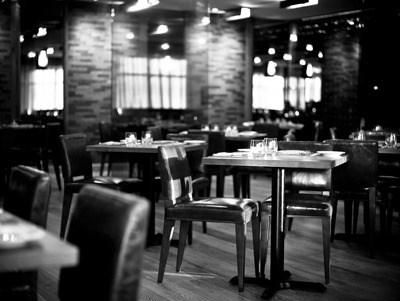When it was announced that international celebrity chef Daniel Bouluds much lauded, side-by-side Â鶹´«Ã½Ó³»outposts DB Bistro and Lumière would be closing, it caused many to ponder the future of high-end dining in the city.
While theres been plenty of speculation as to why two such critically acclaimed rooms couldnt survive, very little has gone beyond the reactionary.
More victims of the HST, the new blood-alcohol limit for drivers and the recession. Wrong. While its true that these obstructions havent done the trade any favours, restaurants are already intimately familiar with facing constant adversity. And yet many are consistently packed, even those with comparably high price points.
People dont enjoy fine dining anymore. False. Try walking inside West or Bishops on most nights without a reservation. Fine dining of the haute, white table-cloth variety may be on the wane, but its still rewarded when done right.
It was a bad location. Yeah? Well, there are far worse. While I understand the sleepy West Side doesnt have the sex appeal of, say, Gastown or Yaletown, it nevertheless boasts a more moneyed customer base than the other two locales put together.
People didnt like the idea of a foreign chef (Daniel Boulud) telling them how to dine. Bullshit. Serial diners regularly frequent the equally foreign (and famous) chef Jean Georges Vongerichtens Market in the Shangri-La.
It wasnt good enough. Are you kidding? Lumière was one of the very best restaurants in all of Canada and DB Bistro was no slouch, either. If their respective chefs, Dale Mackay and Nathan Guggenheimer, arent yet counted among our top culinary assets, mark my words: they will be.
People didnt go on principle after the exit of Rob Feenie Doubtful. When Rob Feenie split from his partners in 2008, some diners may have vowed never to revisit when Feenies and Lumière closed and re-opened under Daniel Bouluds banner, but I doubt there were many. It has been my experience that those who can regularly afford to eat out at this high level tend not to deprive themselves of excellent food for such reasons.
The truth is less obtuse: not enough people dined at either restaurant more than once. Why? Because neither restaurant ever properly communicated who and what they wanted to be to Vancouverites. They were good lovers but bad dates; two machines without a whisper of personality or a whiff of soul. As a consequence, they never made a lasting impression on diners. Doing so should have been their guiding operational goal, but they never seemed all that interested in trying.
At fault in this regard was an ever-changing PR operation that failed to adequately promote the restaurants. Only the announcement of their imminent closing seemed to do the trick. They were booked solid during their last two weeks, filled with people whispering crushing things like I always wanted to go, but somehow I never made it until it was too late. I would have laughed had I not found it so tremendously sad.
It helps to think of the restaurants as victims rather than failures. There were misdemeanours committed against the restaurants and the perpetrators were the owners: locals David and Manjy Sidoo and Daniel Bouluds operational umbrella, Dinex, headquartered in New York. (It also helps to remember that there are two species of restaurateur: those with talent who grow up in the trade and get pushed into the role by way of destiny and inertial force and those with money who arrive in the industry by way of happy accident and a desire to show everyone what big deals they are.)
However much I admire the Sidoos for their business acumen, I cant help but suspect that their travails in the restaurant world were anything but bold exercises in personal brand-building and that Lumière was collected for the sake of prestige. When their adventure with chef Rob Feenie turned sour, the only way for them to maintain face would have been to double-down with a mega-watt star like Daniel Boulud, someone who could overshadow Feenies dramatic exit.
As for Daniel Bouluds role in the ensuing debacle, it appears to have been written more by hubris than talent. Common sense dictates that it takes a special kind of nerve to attach ones name to a restaurant and then fly away under the assumption that it is a guarantor of success.
It worked at first, but then restaurants of interest opened elsewhere in the city and the focus of spoiled-for-choice Vancouverites shifted. If they succeeded, Boulud and the Sidoos would have concentrated on finding ways to compel people to push past the doors, plant down their bums and open their wallets. They never did that, and so here we are.
Restaurants that close after just two years are usually so obviously fated for doom from the start that their ends come as matters of course rather than surprise. I suppose that if there was any surprise at all in the cases of Lumière and DB Bistro, it was that they lasted as long as they did. And so, as the saga now comes to a close (Sunday was the final service for both restaurants), the question is what happens next for talented chefs Guggenheimer and Mackay? For that, youll have to check the Fresh Sheet below.



